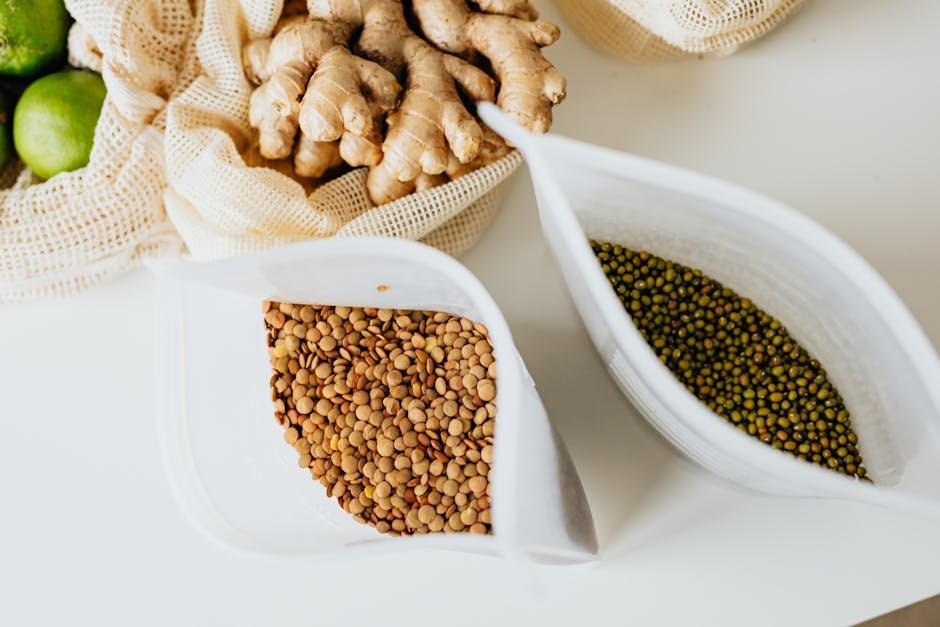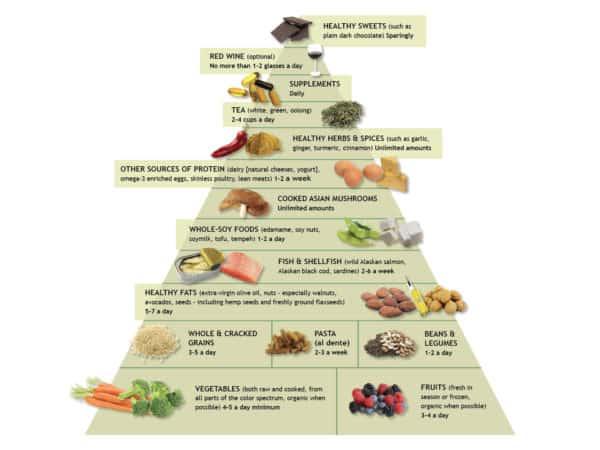In a world where the hustle and bustle often leaves little room for self-care, the adage “you are what you eat” resonates more profoundly than ever. As modern science peels back the layers of nutrition, it reveals a fascinating truth: the foods we consume wield the power to heal, protect, and transform our bodies. Among these culinary allies are anti-inflammatory foods, nature’s own arsenal against the chronic inflammation that silently undermines our health. This article embarks on a journey through the science behind these remarkable edibles, exploring how they combat inflammation and contribute to our overall well-being. From the vibrant hues of berries to the golden glow of turmeric, we delve into the molecular magic that positions these foods as both sustenance and shield, nurturing us from the inside out.
Understanding Inflammation and Its Impact on Health
Inflammation is the body’s natural response to injury or infection, acting as a protective mechanism. However, chronic inflammation can lead to various health issues, including heart disease, arthritis, and even cancer. Fortunately, nature offers a plethora of foods that can help reduce inflammation and improve overall well-being. By understanding the properties of these foods, we can make informed choices that support our body’s healing processes.
- Omega-3 Fatty Acids: Found in fish like salmon and mackerel, these healthy fats are known for their ability to reduce inflammation and promote heart health.
- Antioxidant-Rich Fruits: Berries, such as blueberries and strawberries, are packed with antioxidants that neutralize harmful free radicals.
- Leafy Greens: Vegetables like spinach and kale are rich in vitamins and minerals that support the immune system and combat inflammation.
- Nuts and Seeds: Almonds, walnuts, and flaxseeds provide a good source of healthy fats and fiber, aiding in inflammation reduction.
- Turmeric: This golden spice contains curcumin, a powerful anti-inflammatory compound that has been used for centuries in traditional medicine.
Incorporating these foods into your diet not only helps mitigate inflammation but also supports a balanced and nutritious lifestyle. By opting for a diet rich in anti-inflammatory foods, you empower your body to maintain optimal health and vitality.

The Role of Diet in Reducing Inflammation
Our modern understanding of how diet impacts inflammation is deeply rooted in the intricate dance of nutrients and bodily processes. Certain foods possess unique compounds that can significantly influence the body’s inflammatory pathways. For instance, omega-3 fatty acids, found abundantly in fish like salmon and sardines, are well-regarded for their ability to modulate inflammatory responses. Meanwhile, spices such as turmeric and ginger contain potent antioxidants and anti-inflammatory agents, making them valuable allies in reducing chronic inflammation.
Incorporating a variety of anti-inflammatory foods into daily meals can lead to noticeable health benefits. Here are some key components to consider:
- Fruits and Vegetables: Rich in antioxidants and phytochemicals, these help neutralize free radicals.
- Whole Grains: High in fiber, they assist in maintaining a healthy gut microbiome.
- Healthy Fats: Olive oil and avocados provide monounsaturated fats that support heart health.
- Nuts and Seeds: A great source of omega-3s and other essential nutrients.
By understanding and embracing these dietary components, individuals can take proactive steps towards mitigating inflammation and enhancing overall well-being.

Nutrient Powerhouses: Foods That Fight Inflammation
In the quest to combat inflammation, certain foods stand out as nutritional dynamos, each offering a unique blend of compounds that help soothe the body’s inflammatory response. These foods are not only rich in essential vitamins and minerals but also contain potent antioxidants and phytonutrients. Leafy greens like spinach and kale are brimming with vitamins A, C, and K, which are known to reduce inflammation. Berries, especially blueberries, are packed with flavonoids that possess powerful anti-inflammatory effects. Additionally, fatty fish such as salmon and mackerel provide omega-3 fatty acids, crucial in reducing inflammation markers in the body.
- Turmeric: Contains curcumin, a compound renowned for its anti-inflammatory and antioxidant properties.
- Ginger: Known for its ability to reduce inflammation, ginger is often used to treat various ailments.
- Nuts: Almonds and walnuts are excellent sources of healthy fats and antioxidants, which help combat inflammation.
- Olive Oil: Rich in monounsaturated fats and oleocanthal, which have similar effects to anti-inflammatory drugs.
Incorporating these foods into your daily diet can be a delicious and effective way to promote overall health and combat chronic inflammation. The synergy of these nutrient powerhouses works wonders in keeping inflammation at bay, enhancing both well-being and vitality.

Incorporating Anti-Inflammatory Foods into Your Daily Routine
Embracing a diet rich in anti-inflammatory foods can be a game-changer for your overall health and well-being. These foods are packed with nutrients that help reduce inflammation in the body, which is linked to various chronic diseases. Here are some simple ways to seamlessly integrate these powerhouse foods into your daily meals:
- Start your day with a turmeric-infused smoothie: Blend together your favorite fruits with a pinch of turmeric and a dash of black pepper to boost its absorption.
- Snack on nuts and seeds: Almonds, walnuts, and chia seeds are excellent sources of omega-3 fatty acids and antioxidants.
- Incorporate leafy greens into your meals: Add spinach, kale, or Swiss chard to salads, soups, or smoothies for a nutrient-dense kick.
- Use olive oil as your primary cooking fat: Rich in monounsaturated fats, olive oil can replace less healthy fats in your cooking.
- Spice it up with ginger and garlic: These spices not only add flavor but also offer potent anti-inflammatory properties.
By making these small but impactful changes, you can harness the benefits of anti-inflammatory foods and support a healthier lifestyle.

